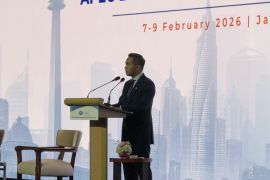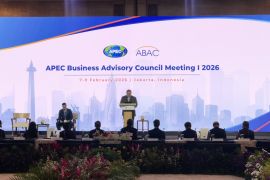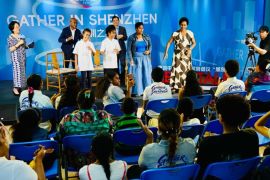In most APEC economies, the percentage of women in customs frontlines or in leadership positions is clearly lower than the percentages of men in similar roles, and many APEC economies have not implemented policies to ensure equal opportunities…Jakarta (ANTARA) - The Asia-Pacific Economic Cooperation (APEC), through its sub-committee on customs procedures, has solidified its commitment to advancing gender equality and women’s economic empowerment in the region by addressing barriers for women in customs administration.
"Supporting the inclusion of women in customs and trade is a key priority for the sub-committee on customs procedures," chair of the sub-committee, Kristie McKinney, said in her remarks at the “Advancing Gender Equality in APEC Customs Administrations” workshop in Palm Springs last week.
"We need to take steps to address the gender equality challenge directly,” McKinney added, according to a release received from the APEC sub-committee on customs procedures here on Tuesday.
The workshop highlighted the areas that are lacking and brought together member economies to discuss approaches to women's economic empowerment, explore current efforts to promote gender mainstreaming in customs administration, and identify best practices and lessons learned for effective gender mainstreaming and inclusion, McKinney informed.
In 2019, APEC ministers reiterated their commitment to ensuring greater integration and empowerment of women in the Asia-Pacific region through the endorsement of the La Serena Roadmap for Women and Inclusive Growth.
The road map seeks to encourage actions in areas that contribute to strengthening women’s labor participation, improving women’s leadership at all levels of decision-making, supporting women’s education, training and skills development, as well as collecting sex-disaggregated data and improving analysis.
According to a recent survey presented at the workshop, women make up 34 percent of senior leaders in customs administration and assume around 35 percent of frontline operational roles.
However, gender pay gap data ranges from 1 percent in favor of women to 16 percent in favor of men.
The survey also found that there is a lack of sex-disaggregated data for many relevant areas for gender mainstreaming, such as data for calculating pay gaps as well as pay grades.
At the workshop, around ten APEC economies shared their measures to support gender equality in their respective organizations. Members also heard views from the World Customs Organization and the Oceania Customs Organizations.
"The goal is to create a foundation for future work in this sector by identifying the systemic barriers faced by women within customs and informing the responses to address these challenges," said Shisla Macleod from New Zealand’s Customs Service, who is overseeing the APEC-funded project.
She explained that measurement will be key to achieving gender equality in APEC customs administrations.
"At present, there is no standard set of metrics across APEC customs administrations to understand the current state of gender mainstreaming and to measure progress," Macleod said.
"Data gaps, especially the dearth of sex-disaggregated data, need to be addressed to allow effective and well-targeted policy interventions," she added.
In addition to data collection, strengthening inter-institutional cooperation within APEC through the sharing of best practices and exploring joint initiatives are deemed crucial for advancing gender mainstreaming across the board.
"The survey results on gender mainstreaming in customs administration show that there is still a lot of work to do in the APEC region across customs administrations," director of the APEC Policy Support Unit, Carlos Kuriyama, said.
"In most APEC economies, the percentage of women in customs frontlines or in leadership positions is clearly lower than the percentages of men in similar roles, and many APEC economies have not implemented policies to ensure equal opportunities, guide women into leadership roles, or provide measures to prevent any type of abuse," he added.
The APEC Policy Support Unit runs the APEC Women and the Economy Dashboard, which is updated every two years.
The dashboard provides a snapshot of the levels of economic and social empowerment that women have achieved in the APEC region.
"Customs administrations across APEC economies play an important role in the economy and in development and, as such, can make an important contribution to APEC’s goals for gender equality and women’s empowerment," Kuriyama added.
Related news: APEC prioritizes technology, data, and science to tackle food security
Related news: APEC pushes agenda to create resilient future for all
Reporter: Yuni Arisandy Sinaga
Editor: Azis Kurmala
Copyright © ANTARA 2023












